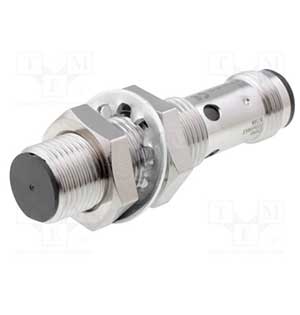Molecular sieve manufacturers play a crucial role in achieving precise adsorption rates by producing high-quality materials tailored for specific applications. Molecular sieves are materials with uniform pore sizes that can selectively adsorb molecules based on their size and shape. They are widely used in various industries, including petrochemical, pharmaceutical, and environmental engineering, for applications such as gas separation, drying, and purification. The precise control of adsorption rates is essential for optimizing process efficiency and ensuring product quality. Molecular sieves are typically made from crystalline aluminosilicates or synthetic zeolites. Their unique structure consists of a three-dimensional network of tetrahedral units, where silicon and aluminum atoms are interconnected by oxygen atoms. This framework creates well-defined pores or cavities that can selectively trap molecules. The size of these pores is determined by the sieve’s composition and synthesis conditions, allowing manufacturers to tailor the material for specific applications.
Pore Size and Distribution – The primary factor affecting adsorption rates is the pore size of the molecular sieve. Different applications require different pore sizes to effectively adsorb target molecules while excluding others. Manufacturers control pore size by adjusting the synthesis parameters, such as the type and concentration of the precursor materials and the temperature and duration of the crystallization process. By producing Jalon molecular sieves with precise pore sizes, manufacturers enable the efficient separation and purification of substances.

Material Composition – The chemical composition of molecular sieves, including the type and amount of metal ions incorporated into the framework, influences their adsorption properties. For instance, the inclusion of certain metal ions can enhance the sieve’s affinity for specific molecules or modify its thermal stability. Manufacturers carefully select and modify the composition to optimize the sieve’s performance for particular applications.
Surface Area and Pore Volume – The total surface area and pore volume of a molecular sieve determine its capacity to adsorb molecules. A higher surface area and pore volume generally lead to greater adsorption capacity. Manufacturers achieve this by controlling the synthesis process to create a high-density network of pores. This capability is crucial for applications requiring large amounts of adsorbent material.
Thermal and Chemical Stability – Adsorption processes often occur under varying temperatures and in the presence of different chemicals. Molecular sieves must maintain their structural integrity and adsorption efficiency under these conditions. Manufacturers ensure the stability of their products by using high-quality raw materials and optimizing the synthesis process to produce sieves with robust thermal and chemical resistance.
Innovations in Molecular Sieve Manufacturing – Recent advancements in molecular sieve technology have further enhanced the precision of adsorption rates. Innovations include the development of nanostructured sieves with even smaller and more uniform pores, which offer improved selectivity and efficiency. Additionally, researchers are exploring the use of alternative synthesis methods, such as sol-gel techniques and template-assisted approaches, to create sieves with tailored properties for specific applications.
Molecular sieve manufacturers are pivotal in achieving precise adsorption rates by producing high-quality materials with controlled pore sizes, compositions, and properties. Their expertise in tailoring molecular sieves for specific applications and ensuring their performance under various conditions drives advancements in adsorption technology. As industries continue to demand more efficient and selective adsorption solutions, the role of molecular sieves in delivering precise and reliable materials remains crucial.
In industrial applications, safety and performance are crucial factors that determine the efficiency and reliability of machinery. Pneumatic cylinders, widely used in various sectors such as manufacturing, automotive, aerospace, and packaging, play a significant role in ensuring smooth and controlled motion. Leading pneumatic cylinder manufacturers are continuously innovating to enhance the safety, durability, and performance of their products, addressing industry demands for higher efficiency, precision, and reliability. One of the key advancements in pneumatic cylinder technology is the integration of improved materials and coatings that enhance durability and resistance to harsh environmental conditions. Manufacturers are now using corrosion-resistant stainless steel, anodized aluminum, and specialized coatings to protect against wear, moisture, and extreme temperatures. This ensures a longer lifespan for the cylinders, reducing maintenance costs and downtime in industrial operations. Additionally, self-lubricating seals and composite materials further improve operational efficiency by minimizing friction and extending service life.

Safety remains a top priority for industries utilizing pneumatic cylinders, and manufacturers are incorporating advanced safety features to prevent accidents and equipment failures. One such innovation is the use of cushioning technology, which absorbs impact forces and reduces sudden movements, preventing damage to machinery and reducing workplace hazards. Additionally, manufacturers are integrating sensors and electronic feedback systems into pneumatic cylinders, allowing real-time monitoring of position, speed, and pressure. These smart cylinders help detect potential failures early, enabling predictive maintenance and reducing the risk of unexpected breakdowns. Energy efficiency is another critical aspect that manufacturers are addressing to optimize industrial operations. Traditional pneumatic systems often experience energy losses due to leakage and inefficiencies in air compression. To overcome this, hebai pneumatic cylinders are designed with precision-engineered seals, improved valve technology, and optimized airflow control to minimize energy waste.
Additionally, advanced flow control mechanisms allow for precise adjustments, reducing unnecessary air consumption and lowering overall operational costs. Some manufacturers are also integrating hybrid systems that combine pneumatics with electromechanical components, offering greater efficiency and performance control. Manufacturers are now offering modular pneumatic cylinders that can be easily configured to meet specific application requirements. These modular designs allow for quick assembly and integration into existing systems, reducing downtime during installation and maintenance. Furthermore, specialized cylinder designs, such as compact, rodless, and guided cylinders, cater to unique industry needs, enhancing functionality and space efficiency in complex machinery. Leading pneumatic cylinder manufacturers are continuously innovating to enhance the safety, efficiency, and reliability of their products in industrial applications. Through advancements in materials, smart technology integration, energy-efficient designs, and customizable solutions, these manufacturers are helping industries achieve higher productivity while ensuring safer working environments. As automation and smart manufacturing continue to evolve, pneumatic cylinder manufacturers will remain a vital component in driving industrial progress.
Transforming a space with high-quality painting and decorating is one of the most effective ways to bring your vision to life. Whether you are revamping a residential home or enhancing the atmosphere of a commercial setting, professional painting and decorating services can turn any area into a stunning environment. The right choice of colors, textures, and finishes not only boosts the aesthetic appeal of a space but also creates the desired mood, whether it is calm and serene or energetic and vibrant. The first step in a successful painting and decorating project understands your vision. Professionals take the time to consult with you, offering expert advice to help you select the best colors and finishes that align with your goals. Whether you are aiming for a sleek, modern look or a more traditional, cozy vibe, they will guide you in making informed decisions. Customizing the design to your personal style is essential, and skilled decorators ensure that the final result reflects your preferences.

Quality preparation is key to achieving a smooth, flawless finish. Experts in the field know that proper surface preparation can make all the difference between a mediocre job and a truly remarkable one. This includes cleaning, sanding, filling cracks, and priming the surfaces. With meticulous attention to detail, they ensure that every surface is ready to receive the paint or wallpaper. This professional touch not only improves the longevity of the finish but also enhances the overall look of the room. When it comes to technique, a skilled Toms Decor team uses a variety of methods to apply paint and wallpaper with precision. They understand the nuances of each material and are adept at using brushes, rollers, or spray equipment to achieve the perfect coat. In addition to traditional paint finishes, high-quality decorators can apply specialized techniques such as faux finishes, murals, or intricate wallpaper patterns, bringing a unique touch to any setting.
The right application ensures that the surfaces are even and long-lasting, preventing issues like streaks or peeling over time. An often-overlooked benefit of professional painting and decorating services is the efficiency they bring to a project. Experienced decorators work swiftly while maintaining the highest quality standards, ensuring that deadlines are met without compromising on the final result. This is particularly valuable for commercial spaces that need minimal disruption to daily operations. By choosing professionals, you can be confident that the job will be completed on time and to your specifications, allowing you to enjoy your revamped space sooner rather than later. A high-quality paint job or decorating project can significantly increase the value of your property. Whether you are looking to sell or simply want to enjoy an improved living or working environment, the aesthetic enhancements provided by professional decorators can have a lasting impact.